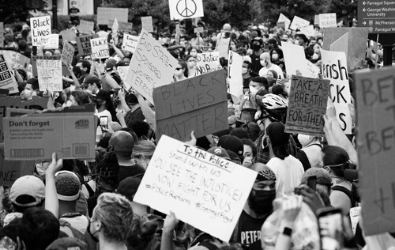Our society is experiencing an inflection point when it comes to critical issues like racial inequality, social justice, and the climate crisis. Consumers are no longer satisfied with the status quo, and socially responsible companies and nonprofits need to be active, visible participants in creating a positive change.
New research has revealed that 71 percent of Americans believe companies have more responsibility than ever before to address social justice issues and 56 percent say companies that do not talk about social justice issues in their marketing or communications are out of touch.
While it is clear companies need to be vocal, brands must speak out appropriately – and messaging is critical in this area. Below are tips for how to communicate your organization’s values effectively and sincerely with today’s conscious consumers.
Communicate with Care
Given the emotional and personal connection people have with social issues, it’s imperative to choose the right words. A well-intentioned message can quickly become counterproductive if the language alienates or offends the audience. Although the intention was to promote unity, peace and understanding, Pepsi’s 2017 ad with Kendall Jenner received widespread criticism for trivializing the Black Lives Matter movement.
Prioritize diverse voices to understand how the business can become a better ally to people striving for progress. Be thoughtful and proactive in promoting the company’s principles and beliefs on social issues and look for ways to partner with likeminded institutions to get the message out.
Be Transparent
In the past, many businesses have stayed on the sidelines during tough discussions for fear of saying or doing the wrong thing. However, staying silent can speak volumes in a negative way. If your company has imperfections when it comes to critical issues, demonstrating how the company is making strides to change that is imperative. For example, while Boston Scientific is donating $2.5 million to groups that tackle disparities in everything from education to healthcare, the organization has also admitted the need to diversify its leadership team. The public appreciates honest, open dialogue, so it is crucial to develop a transparent communications plan that admits to the need for improvement. Be sure to detail the actions the company is taking to progress, so it is clear how consumers can hold the business accountable in the future.
Get Everyone on the Same Page
Everyone associated with the organization is a representative of the brand, so employees and stakeholders outside of the marketing and PR department need to be informed about how they should talk about important topics. A unified message demonstrates a cohesive commitment to a company’s mission and values. Remember to circulate statements, blog posts and pieces of coverage to the entire team, so all parties are informed and can amplify communication efforts within their own networks.
Stay the Course
While the news cycle may shift, it is important for companies to remain committed to creating positive change. Dramatic progress will not be achieved overnight. Organizations should report their progress and celebrate the smaller victories along the way to show consumers that they are still doing the hard work. In continuing the conversation, companies can show that these issues matter to them in the long term and their support for the cause is not a passing fad. Ben & Jerry’s has been praised for their aggressive statement against police brutality, in part because the company has made social justice a priority for decades.


